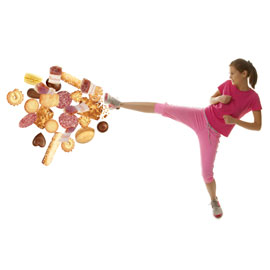
There are certain things that your body needs to survive. This includes water, essential nutrients, vitamins, and minerals. When you run low on these fundamental components of your diet you’ll start to experience some pretty severe consequences, including malnourishment and dehydration.
As much as you might long for your favorite snack or the salty satisfaction of a bag of chips, those longings are not anything close to the pangs for nutrients that your body would experience if you truly needed something in your diet. Cravings are the physical manifestation of temptation. They often come out of nowhere and can be incredibly strong, making even the most dedicated of dieters stray from their nutrition plan in the name of a sweet snack. After weight loss surgery, managing those cravings is going to be more important than ever.
Understanding Cravings
Many people don’t realize this, but cravings are actually quite scientific. They are prompted by a number of neurological factors within the body. One of these primary factors is your body’s stress response. A tough day at work or a series of stressful interactions with friends and family members at home can trigger your mind to want comfort, and that comfort is typically connected with certain foods.
The absolute worst thing you can do when a craving strikes is attempt to ignore it. The longer a craving sits, the stronger it is going to get. Telling yourself to ignore something typically makes the thought stronger, like throwing oil on a fire. A much better strategy is to address the craving and consciously ride the urge to its completion.
Here are a few helpful tactics to help you cope with cravings:
- Think the craving through. Ask yourself what exactly caused the craving, and what precisely it is that you want. Often, cravings are prompted by advertising or memories. Other times, it is simply stress and a desire for comfort food. Really consider what is causing your particular craving.
- Consider if you are actually hungry. Cravings can strike when you are perfectly full, and this is often when they are the most dangerous. Eating when you are not hungry contributes to weight gain. Before giving into a craving, figure out if you are actually hungry. If you aren’t hungry, there is no reason to eat.
- Tell yourself “maybe later.” Rather than telling yourself “no,” it is a better idea to think of it as something you can have later. This will reduce the pangs for immediate gratification, especially if you realize you aren’t hungry at that moment. Once the craving goes away you can make a rational decision about what to eat.
- Find a compromise. If you are craving something sweet, think about what you can have in line with your diet plan that will meet that need. The same goes for something salty. Maybe a healthy snack will help satisfy the craving just as well as something unhealthy.
Another great way to cope with cravings is to find another way to entertain yourself, like with exercise or by engaging in a hobby. Try walking the dog, brushing your teeth, calling a friend or cleaning the house. Having a list of things to do can help you find a way to keep busy when cravings strike.

Leave a Reply